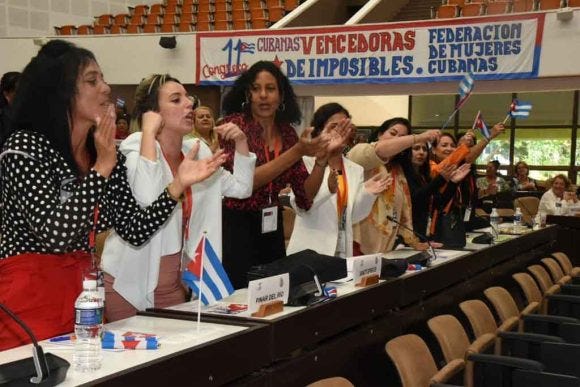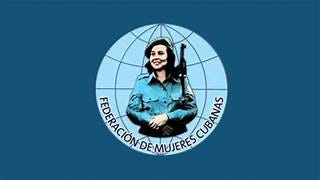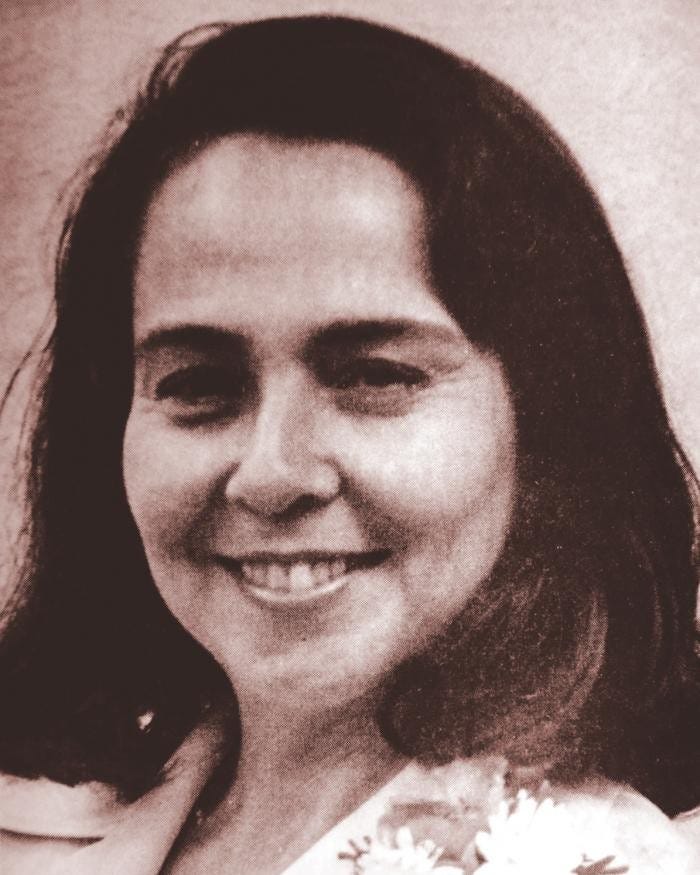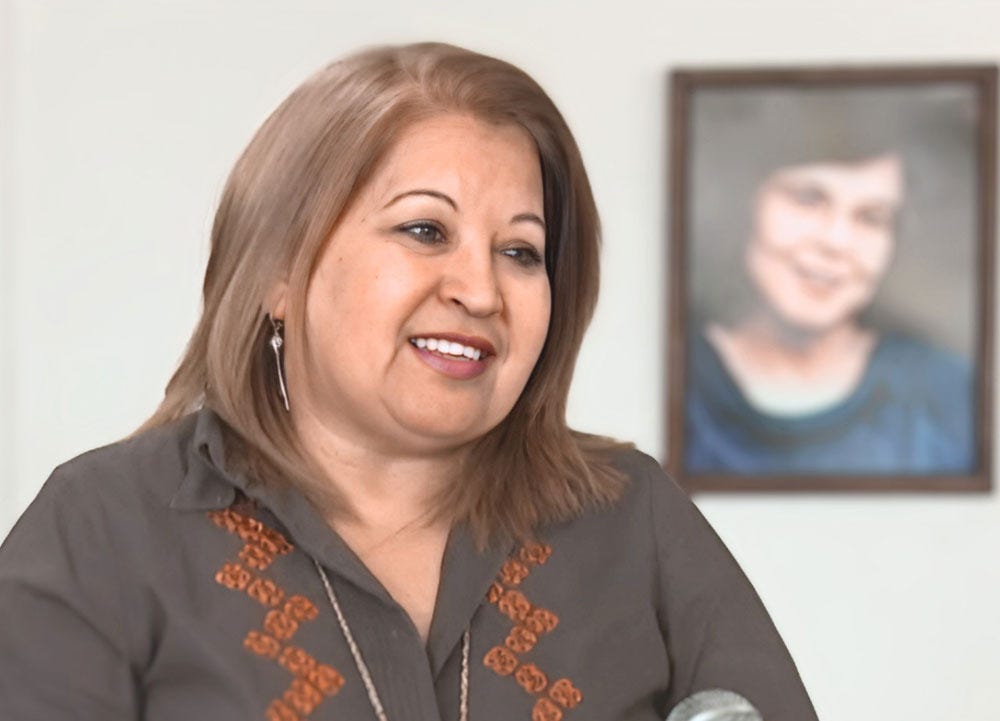Vilma and the women’s movement in Cuba
A movement that is a revolution within a revolution avoids the post-modern trap
Cuba on April 7 commemorated the ninety-fifth anniversary of the birth of Vilma Espín, who with Fidel Castro founded the Federation of Cuban Women in 1960. The daughter of a wealthy doctor, Vilma was born in Santiago de Cuba on April 7, 1930. She earned a degree in chemical engineering at the University of Oriente in Santiago de Cuba in 1954. She participated in the armed uprising in Santiago de Cuba on November 30, 1956, directed by Frank País, which was intended as a diversionary strategy in coordination with the disembarking of a guerilla force directed by Fidel Castro. On July 20, 1957, she was named provincial coordinator of the July 26 Revolutionary Movement. In 1958, she joined the Second Front of the July 26 Revolutionary Movement, led by Raúl Castro.
Following the triumph of the Cuban Revolution on January 1, 1959, Vilma married Raúl Castro, an event that was celebrated in the Cuban press, in spite of the general tendency of the press to not intrude in the private lives of revolutionary leaders. On August 23, 1960, she and Fidel established the Federation of Cuban Women, serving as its president until her death in 2007. In 1965, she was among the founding members of the Central Committee of the Communist Party of Cuba. In 1972, she led the creation of a national work group which became the National Center for Sexual Education. In 1976, upon the creation of the political system of people’s power, Vilma was elected a deputy of the National Assembly of People’s Power and a member of the Council of State. In 1977, she presided over the First Regional Conference on the Integration of Women and Development, sponsored by CEPAL (Economic Commission of Latin America and the Caribbean). In 1978, she created the Regional Center of the International Democratic Federation of Women for Latin America and the Caribbean. She was awarded the title Heroine of the Republic of Cuba by Fidel in 2002. Vilma is today recognized as “the eternal president of the Federation of Cuban Women.”
The Federation of Cuban Women (FMC)
The Cuban women’s movement emerged in the early 1920s, in response to profound prejudice and discrimination against women in both law and custom. Working women received salaries much lower than men for the same work, and women did not have the right to vote or hold public office. The National Congress for Women of 1923 called for a campaign for women’s suffrage and a struggle for the attainment of full and equal social, political, and economic rights for women. In subsequent decades, women actively and courageously participated in the anti-neocolonial struggle forged by workers, peasants, students, and professionals, thus winning in political practice a degree of acceptance of the principal of full equality for women. The Constitution of 1940, written by a democratically elected Constitutional Convention held in a moment of democratic opening, recognized the full equality of all, regardless of sex, race, color, class, or social condition; and it affirmed the rights of women to vote and hold public office. The establishment of the Federation of Cuban Women in 1960 led to a number of specific actions and programs that would make possible the full incorporation of women in the political, economic, and social life of Cuba.
The Federation of Cuban Women (FMC for its initials in Spanish) today has 3,244,000 members nationwide, which is 91.47% of women fourteen years of age or older. In the most recent elections to local assemblies of People’s Power, 44.42% of the elected delegates were women, elected by the people in secret voting in 12,427 voting districts. In the subsequent elections to the National Assembly of People’s Power, 55.74% of the elected deputies were women, elected by the elected delegates of the local assemblies. The National Assembly of People’s Power is the highest political authority in Cuba, constitutionally authorized to enact laws and to elect and recall the highest members of the executive branch, including the President of the Republic and the Prime Minister.
The Cuban Constitution of 2019 gave constitutional foundation to evolving norms and practices with respect to women. The new Constitution mandated the formulation of new laws, so that Constitutional principles would have legal force. This process was followed in all areas of Cuban life and society, not only issues related to women.
The National Program for the Advancement of Women was approved by the National Assembly of People’s Power in 2021. While recognizing the substantive changes in law and in objective and subjective conditions that have been attained since the triumph of the Revolution, the 2021 law contains initiatives designed to advance the economic empowerment of women and to continue to advance in equality of rights, opportunities, and possibilities. It seeks the prevention and elimination of all manifestations of discrimination against women, by means of the creation of a culture of equality through education in schools and the media. It particularly notes the need for the empowerment of women in industrial management and for greater inclusion of women in occupations and professions not traditional for women.
The Integral Strategy for the Prevention of and Attention to Gender and Family Violence was approved by the National Assembly in 2023. Its preamble notes that the Constitution of the Republic guarantees protection from gender violence in all its manifestations. The Preamble further notes that mothers and fathers have responsibilities with respect to their essential functions in the education and integral formation of new generations in moral values. They have the responsibility to contribute actively to the full personality development of girls, boys, and adolescents. Parents have the duty to respect and guarantee the full exercise of rights by girls, boys, and adolescents; and to protect them from all forms of violence.

A revolution within the Revolution
The Federation of Cuban Women was founded in 1960 with the intention of giving organizational form to the fundamental conception of a women’s revolution within the Cuban Revolution. Because of this founding principle, FMC could never become conflictual, because the Cuban Revolution requires the unity of the people. The Cuban women’s movement could never turn to post-truth, because the Cuban Revolution is rooted in fundamental scientific and moral truths. FMC could never debunk all manifestations of political power, because the Cuban Revolution is based on the taking of political power by a vanguard and using political power in defense of the people. The Cuban women’s movement could never seek emancipation from the family, because the Cuban Revolution is a pro-family revolution, constructing a socialist society with the family as a fundamental unit of socialization. The Cuban women’s movement could never rebel against the binary nature of the sexes, because the Cuban Revolution was founded on the modern philosophy of natural rights.
The women’s movement in the United States, however, evolved in a different political and cultural context. The “first wave” of U.S. feminism was initiated with the Seneca Falls Convention in 1848, which declared the self-evident inalienable rights of men and women, thus basing the movement on the Declaration of Independence of the American Revolution.
The second wave erupted during the social turmoil of the late 1960s and continued for two decades. Going beyond the legal equality demanded by the first wave, the second wave of the women’s movement envisioned broader social and political equality, including a rethinking of women’s roles in the home and in the workforce. Thus, in its manifestations during the first and second waves, the U.S. women’s movement was a revolution within the American Revolution.
But during the 1990s, a third wave emerged, which, among other characteristics, rejected the American Revolution, because of its patriarchal assumptions. And it turned to French post-modern assumptions, which led, in the fourth wave that began about 2012, to a separation of “woman” from biology, such that “woman” is no longer a sex, but a gender, and as such, it is a cultural construction, which can be claimed by biological men on a basis of a subjective sense of identification. These notions stood against the philosophical conceptions of the American Revolution, which continued to have resonance among significant numbers of the American people. Thus, beginning in the 1990s, the women’s movement divorced itself from the previous political practice of a revolution within the American Revolution.
In The Genesis of Gender: A Christian Theory, published by Ignatius Press in 2022, Abigail Favale analyzes postmodernism and its influence on gender theory and on transgender activism. She describes postmodernism as “a worldview that sees reality in terms of narratives that are created by human beings, rather than an order of objective truths that can be discovered by human beings.” For postmodernists, therefore, there is no objective truth.
Favale maintains that especially important in the influence of French existentialism and post-modernism on American feminism has been the work of Judith Butler, whose “primary goal as a theorist is to dismantle the normalization of heterosexual relationships—the tendency to see the male and female sexual relationship as normal and natural.” Butler maintains that “the idea that humankind is split into two sexes that are biologically complementary is a social fiction rather than a matter of fact.”
This has significant implications, Favale maintains, because it means that conflicting truth claims are resolved in the terrain of power. “What Butler is saying here is that what we perceive to be ‘real’ is actually a fiction that is created and enforced by institutional power. In the postmodern perspective, truth is suspended in air as ultimately unknowable (or nonexistent). All that remains is power. Knowledge, then, is not a matter of discerning or recognizing what is true, because ‘truth’ itself is a construction of power.”
Favale maintains that these ideas lead to power games, as political actors seek to advance their version of the truth. “This postmodern understanding of truth-as-power leads to a postmodern political praxis, in which language is intentionally manipulated to institutionalize these ‘new modes of reality.’” Therefore, there is emphasis on policing speech, which “is a concerted effort to enforce a new social truth-script through an exercise of power.”
An evolution similar to what occurred in the women’s movement also transpired in the black movement, which was forged from 1919 to 1972 as a movement for full citizenship rights and for equality of opportunity within the American Revolution, but beginning in the 1990s, it turned to the construction of post-modern narratives in defense of the interests of the black middle class. I have written about this phenomenon in previous posts. See, for example, “Postmodern wokism destroys the foundations: Provoking confusion and division among the people, to the benefit of a few,” September 5. 2023; “The rise and eclipse of black power: The abandonment of the black community by the black middle class,” November 26, 2024; and “The ideology of anti-racism: The negation of black empowerment,” November 29, 2024.
The evolution of the social movements in the United States toward post-modern formulation constitutes a fundamental divergence from the Cuba Revolution. For Cuba, principles like “all nations have the right to sovereignty” and “all children have the right to a school” are not politically convenient social constructions, but fundamental moral truths that must guide humanity. Similarly, Cuba understands its national narrative of the Cuban Revolution to be a formulation based in historical investigation of objective reality. Its claim, for example, that the women’s movement is a revolution within the revolution is based in historical and empirical investigation; it is not a formulation driven by political or economic interests. The Cuban Revolution believes in truth and in the political necessity of speaking the truth, in order to maintain the trust and participation of the people.
But in the USA, in the late twentieth century, the women’s and black movements ceased being revolutions within the American revolution. Having lost their bearings, they became allies of the corporate elite, serving its interests in dividing the people. Moreover, because of the influence of the black intellectuals/artists/activists and third/fourth wave feminism on the U.S. Left, the turn of the 1980s and 1990s rendered the Left incapable of formulating a profound and constructive critique of fundamental American tendencies since the Second World War, namely, the Cold War and the permanent military economy, neoliberalism and its myopic ideological attack on the State, and neoconservatism and its tragically destructive endless wars.
Maybe instead of studying French intellectuals, we in the United States should have paid more attention to what they were constructing in socialist Cuba, which might have enabled the 1960s New Left and civil rights/black power movements to establish themselves as a permanent constructive critical presence in U.S. political culture. Because of this historic failure of the Left, the necessary critique has emerged in an unanticipated form, from the Right, in the form of MAGA. The current tendency to dismiss MAGA as a fascist or authoritarian movement is yet another error of the Left. MAGA ought to be critically engaged as an anti-establishment political movement based in the working class and in rural and small-town America, which ipso facto entitles it to respect.
A free subscription option is available, with capacity to read, send, and share all posts. A paid subscription ($5 per month or $40 per year) enables you to make comments and to support the costs of the column; paid subscribers also receive a free PDF copy of my book on Cuba and the world-system. Ten percent of income generated through subscriptions to the column is donated to the Cuban Society for Philosophical Investigations.
Deepen your understanding of people’s democracy, a post-bourgeois form of democracy necessary for our times:
People’s Democracy in Cuba: A vanguard political-economic system





